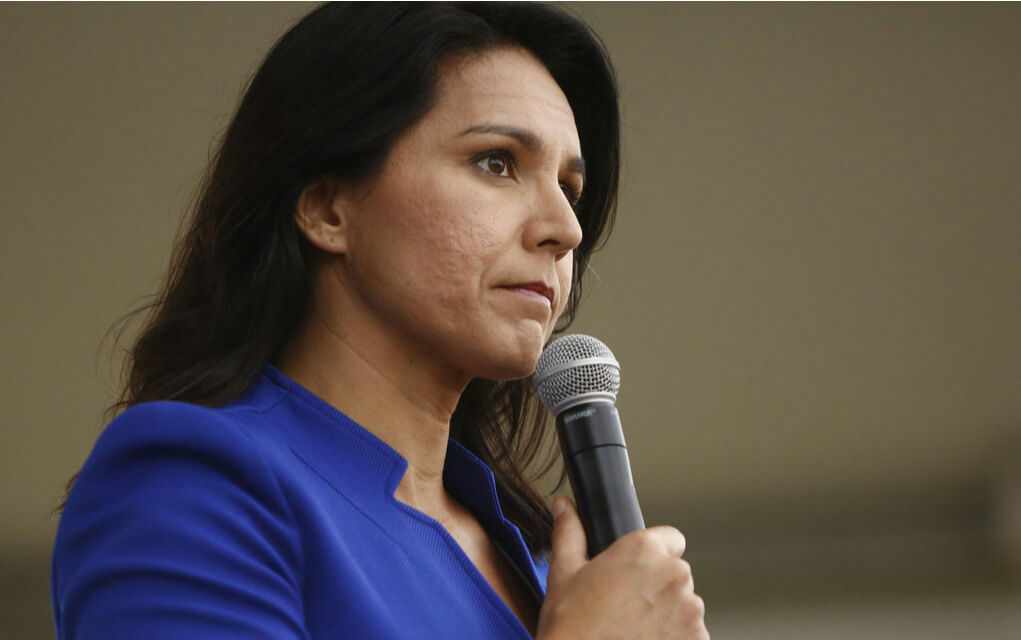
In a move that shakes the very foundation of the intelligence community, Director of National Intelligence Tulsi Gabbard has stripped security clearances from 37 officials accused of betraying public trust through politicized intelligence—finally holding the “deep state” accountable.
Story Snapshot
- Tulsi Gabbard, as DNI, revoked security clearances for 37 intelligence officials with alleged ties to politicized activities.
- The action responds to years of claims about “weaponization” of intelligence, especially over the 2016 Russia interference probe.
- This move follows a Trump administration push for transparency and reform within the intelligence community.
- The unprecedented scale and public naming signal a new era of accountability, but raise concerns about politicization and morale within the IC.
Gabbard’s Crackdown on Politicized Intelligence
On August 19, 2025, Director of National Intelligence Tulsi Gabbard publicly announced the removal of security clearances from 37 current and former intelligence officials. This decisive action, revealed through an official memo and a post on social media, specifically targeted individuals tied to what the Trump administration describes as “politicized intelligence activities.” Many of those named were directly involved in the Obama-era assessment of Russian interference in U.S. elections, a process long criticized by conservative leaders as tainted by political bias.
This unprecedented scale of clearance revocations reflects a long-standing frustration among conservatives over perceived “deep state” interference and lack of accountability within the intelligence community. Gabbard emphasized restoring public trust, citing “abuse of the public trust” as the central reason for the action. The move is the most significant public naming and shaming of intelligence officials in recent U.S. history, signaling a broad effort to root out what the administration calls “weaponization” of intelligence for political ends. This follows the April 2025 creation of a special task force, the Director’s Initiatives Group, charged with investigating and recommending reforms throughout the intelligence community.
Historical Grievances Fueling Reform Efforts
Conservative critics have long argued that America’s intelligence agencies became politicized under previous administrations, especially during the high-profile investigations into Russian election interference in 2016 and 2020. President Trump’s return to office in 2024 made intelligence reform a central campaign promise, with calls to “drain the swamp” and restore the integrity of federal agencies. The Trump administration’s new approach represents a sharp departure from previous norms: not only are clearances being revoked at an unprecedented scale, but the administration is also publicly naming those involved, a tactic designed to maximize transparency and deterrence against future abuses.
Gabbard’s task force, established in April 2025, was given explicit authority to investigate allegations of politicization and misuse of intelligence authority. The goal, according to administration statements, is to restore the intelligence community’s core mission—objective analysis free from political interference. The move also aligns with a broader pattern of Trump-era reforms across federal agencies, targeting what supporters see as entrenched bureaucratic resistance to constitutional government and conservative values.
Immediate Fallout and Political Ramifications
The revocation of security clearances has immediate operational effects: the 37 named officials lose all access to classified materials, effectively ending their influence within the intelligence community. Supporters argue this is overdue accountability for individuals who, in their view, placed political agendas above the national interest. However, the move also raises concerns about a chilling effect within the intelligence community, where dissenting voices may become reluctant to speak up due to fear of political retribution.
Legal challenges are possible, as affected officials and their defenders claim the action is punitive and undermines the apolitical nature of intelligence work. Critics warn that using security clearance revocation as a tool for political reform could damage morale, hamper recruitment, and erode institutional memory within the agencies. Yet, for many in the conservative base, this represents a long-awaited victory against what they see as a bureaucracy that has too often acted with impunity and against the will of the American people.
Broader Impact: Restoring Trust or Raising New Risks?
In the short term, the Trump administration’s hardline stance disrupts the intelligence community and intensifies the national debate over the proper limits of executive authority. The Director’s Initiatives Group continues to review personnel and practices, signaling that further actions may be on the horizon. While supporters believe the crackdown is essential for restoring faith in American institutions, opponents caution that it could establish a precedent for future administrations to use clearance revocation as a political weapon, potentially undermining the intelligence community’s independence and America’s relationships with global allies.
The long-term impacts remain uncertain. Some experts warn that politicizing clearance decisions could deter qualified professionals from public service, while others insist that transparency and accountability are vital for a functioning democracy. As the Trump administration continues its campaign to overhaul federal agencies, the revocation of 37 security clearances stands as a defining moment in the battle over the future of American intelligence—and a stark warning to those who would place politics above country.




